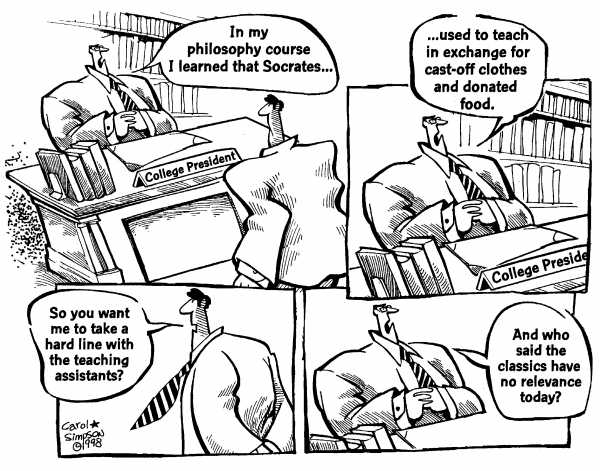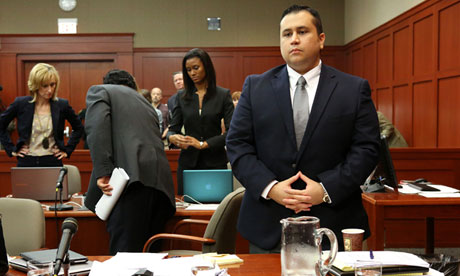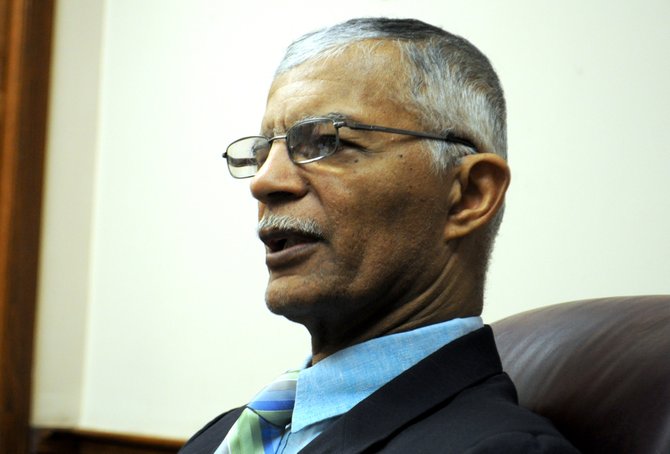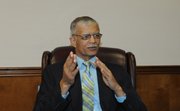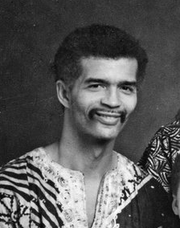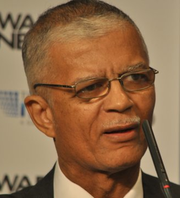How The American University was Killed, in Five Easy Steps
A few years back, Paul E. Lingenfelter began his
report
on the defunding of public education by saying, “In 1920 H.G. Wells
wrote, ‘History is becoming more and more a race between education and
catastrophe.’ I think he got it right. Nothing is more important to the
future of the United States and the world than the breadth and
effectiveness of education, especially of higher education. I say
especially higher education, but not because pre- school, elementary,
and secondary education are less important. Success at every level of
education obviously depends on what has gone before. But for better or
worse, the quality of postsecondary education and research affects the
quality and effectiveness of education at every level.”
In the last few years, conversations have been growing like gathering
storm clouds about the ways in which our universities are failing.
There is talk about the poor educational outcomes apparent in our
graduates, the out-of-control tuitions and crippling student loan debt.
Attention is finally being paid to the enormous salaries for presidents
and sports coaches, and the migrant worker status of the low-wage
majority faculty.
There are now movements to control tuition, to forgive
student debt, to create more powerful “assessment” tools, to offer
“free” university materials online, to combat adjunct faculty
exploitation. But each of these movements focuses on a narrow aspect of a
much wider problem, and no amount of “fix” for these aspects
individually will address the real reason that universities in America
are dying.
To explain my perspective here, I need to go back in time. Let’s go
back to post World War II, 1950s when the GI bill, and the affordability
– and sometimes free access – to universities created an upsurge of
college students across the country. This surge continued through the
’60s, when universities were the very heart of intense public discourse,
passionate learning, and vocal citizen involvement in the issues of the
times. It was during this time, too, when colleges had a thriving
professoriate, and when students were given access to a variety of
subject areas, and the possibility of broad learning.
The Liberal Arts
stood at the center of a college education, and students were exposed to
philosophy, anthropology, literature, history, sociology, world
religions, foreign languages and cultures. Of course, something else
happened, beginning in the late fifties into the sixties — the uprisings
and growing numbers of citizens taking part in popular dissent —
against the Vietnam War, against racism, against destruction of the
environment in a growing corporatized culture, against misogyny, against
homophobia.
Where did much of that revolt incubate?
Where did large
numbers of well-educated, intellectual, and vocal people congregate?
On
college campuses. Who didn’t like the outcome of the 60s?
The
corporations, the war-mongers, those in our society who would keep us
divided based on our race, our gender, our sexual orientation.
I suspect that, given the opportunity, those groups would have liked
nothing more than to shut down the universities. Destroy them outright.
But a country claiming to have democratic values can’t just shut down
its universities. That would reveal something about that country which
would not support the image they are determined to portray – that of a
country of freedom, justice, opportunity for all. So, how do you kill
the universities of the country without showing your hand? As a child
growing up during the Cold War, I was taught that the communist
countries in the first half of the 20th Century put their scholars,
intellectuals and artists into prison camps, called “re-education
camps”.
What I’ve come to realize as an adult is that American
corporatism despises those same individuals as much as we were told
communism did. But instead of doing anything so obvious as throwing them
into prison, here those same people are thrown into dire poverty. The
outcome is the same. Desperate poverty controls and ultimately breaks
people as effectively as prison…..and some research says that it works
even MORE powerfully.
So: here is the recipe for killing universities, and you tell ME if
what I’m describing isn’t exactly what is at the root of all the
problems of our country’s system of higher education. (Because what I’m
saying has more recently been applied to K-12 public education as well.)
First, you defund public higher education.
Anna Victoria, writing in
Pluck Magazine, discusses this issue in a review of Christopher Newfield’s book,
Unmaking the Public University: “In 1971, Lewis Powell (before assuming his post as a Supreme Court Justice) authored a memo, now known as the
Powell Memorandum,
and sent it to the U.S. Chamber of Commerce. The title of the memo was
“Attack on the American Free Enterprise System,” and in it he called on
corporate America to take an increased role in shaping politics, law,
and education in the United States.”
How would they do that?
One, by
increased lobbying and pressure on legislators to change their
priorities. “Funding for public universities comes from, as the term
suggests, the state and federal government. Yet starting in the early
1980s, shifting state priorities forced public universities to
increasingly rely on other sources of revenue. For example, in the
University of Washington school system, state funding for schools
decreased as a percentage of total public education budgets from 82% in
1989 to 51% in 2011.”
That’s a loss of more than 1/3 of its public
funding. But why this shift in priorities? U.C. Berkeley English
professor, Christopher Newfield, in his new book
Unmaking the Public University
posits that conservative elites have worked to de-fund higher education
explicitly because of its function in creating a more empowered,
democratic, and multiracial middle class. His theory is one that blames
explicit cultural concern, not financial woes, for the current decreases
in funding. He cites the fact that California public universities were
forced to reject 300,000 applicants because of lack of funding. Newfield
explains that much of the motive behind conservative advocacy for
de-funding of public education is racial, pro-corporate, and
anti-protest in nature.
Again, from Victoria: “(The) ultimate objective, as outlined in the
(Lewis Powell) memo, was to purge respectable institutions such as the
media, arts, sciences, as well as college campus themselves of left-wing
thoughts. At the time, college campuses were seen as “springboards for
dissent,” as Newfield terms it, and were therefore viewed as publicly
funded sources of opposition to the interests of the establishment.
While it is impossible to know the extent to which this memo influenced
the conservative political strategy over the coming decades, it is
extraordinary to see how far the principles outlined in his memo have
been adopted.”
Under the guise of many “conflicts”, such as budget struggles, or
quotas, de-funding was consistently the result. This funding argument
also was used to re-shape the kind of course offerings and curriculum
focus found on campuses. Victoria writes, “Attacks on humanities
curriculums, political correctness, and affirmative action shifted the
conversation on public universities to the right, creating a climate of
skepticism around state funded schools. State budget debates became
platforms for conservatives to argue why certain disciplines such as
sociology, history, anthropology, minority studies, language, and gender
studies should be de-funded…” on one hand, through the argument that
they were not offering students the “practical” skills needed for the
job market — which was a powerful way to increase emphasis on what now
is seen as vocational focus rather than actual higher education, and to
de-value those very courses that trained and expanded the mind,
developed a more complete human being, a more actively intelligent
person and involved citizen.
Another argument used to attack the
humanities was “…their so-called promotion of anti-establishment
sentiment. Gradually, these arguments translated into real- and often
deep- cuts into the budgets of state university systems,” especially in
those most undesirable areas that the establishment found to run counter
to their ability to control the population’s thoughts and behavior. The
idea of “manufactured consent” should be talked about here – because if
you remove the classes and the disciplines that are the strongest in
their ability to develop higher level intellectual rigor, the result is a
more easily manipulated citizenry, less capable of deep interrogation
and investigation of the establishment “message”.
Second, you deprofessionalize and impoverish the professors
(and continue to create a surplus of underemployed and unemployed Ph.D.s)
V.P. Joe Biden, a few months back, said that the reason tuitions are
out of control is because of the high price of college faculty. He has
NO IDEA what he is talking about. At latest count, we have 1.5 million
university professors in this country, 1 million of whom are adjuncts.
One million professors in America are hired on short-term contracts,
most often for one semester at a time, with no job security whatsoever –
which means that they have no idea how much work they will have in any
given semester, and that they are often completely unemployed over
summer months when work is nearly impossible to find (and many of the
unemployed adjuncts do not qualify for unemployment payments).
So, one
million American university professors are earning, on average, $20K a
year gross, with no benefits or healthcare, no unemployment insurance
when they are out of work. Keep in mind, too, that many of the more
recent Ph.Ds have entered this field often with the burden of six figure
student loan debt on their backs.
There was recently an
article
talking about the long-term mental and physical destruction caused when
people are faced with poverty and “job insecurity” — precarious
employment, or “under-employment”. The article says that, in just the
few short years since our 2008 economic collapse, the medical problems
of this group have increased exponentially. This has been the horrible
state of insecurity that America’s college professors have experienced
now for thirty years. It can destroy you — breaking down your physical
and emotional health.
As an example: the average yearly starting salary
of a university professor at Temple University in 1975 was just under
$10,000 a year, with full benefits – health, retirement, and educational
benefits (their family’s could attend college for free.) And guess
what? Average pay for Temple’s faculty is STILL about the same — because
adjuncts now make up the majority of faculty, and earn between $8,000
to $14,000 a year (depending on how many courses they are assigned each
semester – there is NO guarantee of continued employment) — but unlike
the full-time professors of 1975, these adjunct jobs come with NO
benefits, no health care, no retirement, no educational benefits, no
offices. How many other professions report salaries that have remained
at 1975 levels?
This is how you break the evil, wicked, leftist academic class in
America — you turn them into low-wage members of the precariat – that
growing number of American workers whose employment is consistently
precarious. All around the country, our undergraduates are being taught
by faculty living at or near the poverty line, who have little to no say
in the way classes are being taught, the number of students in a class,
or how curriculum is being designed. They often have no offices in
which to meet their students, no professional staff support, no
professional development support. One million of our college professors
are struggling to continue offering the best they can in the face of
this wasteland of deteriorated professional support, while living the
very worst kind of economic insecurity.
Unlike those communist
countries, which sometimes executed their intellectuals, here we are
being killed off by lack of healthcare, by stress-related illness like
heart-attacks or strokes. While we’re at it, let’s add suicide to that
list of killers — and readers of this blog will remember that I have
written at length about adjunct faculty suicide in the past.
Step #3: You move in a managerial/administrative class who take over governance of the university.
This new class takes control of much of the university’s functioning,
including funding allocation, curriculum design, course offerings. If
you are old enough to remember when medicine was forever changed by the
appearance of the ‘HMO’ model of managed medicine, you will have an idea
of what has happened to academia. If you are not old enough – let me
tell you that Once Upon a Time, doctors ran hospitals, doctors made
decisions on what treatment their patients needed. In the 1970s, during
the infamous Nixon Administration, HMOs were an idea sold to the
American public, said to help reign in medical costs.
But once Nixon
secured passage of the HMO Act in 1973, the organizations went quickly
from operating on a non-profit organization model, focused on high
quality health care for controlled costs, to being for-profit
organizations, with lots of corporate money funding them – and suddenly
the idea of high-quality health care was sacrificed in favor of profits –
which meant taking in higher and higher premiums and offering less and
less service, more denied claims, more limitations placed on doctors,
who became a “managed profession”.
You see the state of healthcare in
this country, and how disastrous it is. Well, during this same time,
there was a similar kind of development — something akin to the HMO —
let’s call it an “EMO”, Educational Management Organization, began to
take hold in American academia. From the 1970s until today, as the
number of full-time faculty jobs continued to shrink, the number of
full-time administrative jobs began to explode.
As faculty was
deprofessionalized and casualized, reduced to teaching as migrant
contract workers, administrative jobs now offered good, solid salaries,
benefits, offices, prestige and power. In 2012, administrators now
outnumber faculty on every campus across the country. And just as
disastrous as the HMO was to the practice of medicine in America, so is
the EMO model disastrous to the practice of academia in America, and to
the quality of our students’ education. Benjamin Ginsburg writes about
this in great detail in his book
The Fall of the Faculty.
I’d like to mention here, too, that universities often defend their
use of adjuncts – which are now 75% of all professors in the country —
claiming that they have no choice but to hire adjuncts, as a “cost
saving measure” in an increasingly defunded university. What they don’t
say, and without demand of transparency will NEVER say, is that they
have not saved money by hiring adjuncts — they have reduced faculty
salaries, security and power. The money wasn’t saved, because it was
simply re-allocated to administrative salaries, coach salaries and
outrageous university president salaries.
There has been a
redistribution of funds away from those who actually teach, the scholars
– and therefore away from the students’ education itself — and into
these administrative and executive salaries, sports costs — and the
expanded use of “consultants”, PR and marketing firms, law firms. We
have to add here, too, that president salaries went from being, in the
1970s, around $25K to 30K, to being in the hundreds of thousands to
MILLIONS of dollars – salary, delayed compensation, discretionary funds,
free homes, or generous housing allowances, cars and drivers,
memberships to expensive country clubs.
Step Four: You move in corporate culture and corporate money
To further control and dominate how the university is ‘used” -a flood
of corporate money results in changing the value and mission of the
university from a place where an educated citizenry is seen as a social
good, where intellect and reasoning is developed and heightened for the
value of the individual and for society, to a place of vocational
training, focused on profit. Corporate culture hijacked the narrative –
university was no longer attended for the development of your mind. It
was where you went so you could get a “good job”. Anything not
immediately and directly related to job preparation or hiring was
denigrated and seen as worthless — philosophy, literature, art, history.
Anna Victoria writes, on Corporate Culture: “Many universities have
relied on private sector methods of revenue generation such as the
formation of private corporations, patents, increased marketing
strategies, corporate partnerships, campus rentals, and for-profit
e-learning enterprises. To cut costs, public universities have employed
non-state employee service contractors and have streamlined their
financial operations.”
So what is the problem with corporate money, you might ask? A lot.
When corporate money floods the universities, corporate values replace
academic values. As we said before, humanities get defunded and the
business school gets tons of money. Serious issues of ethics begin to
develop when corporate money begins to make donations and form
partnerships with science departments – where that money buys influence
regarding not only the kinds of research being done but the outcomes of
that research.
Corporations donate to departments, and get the use of
university researchers in the bargain — AND the ability to deduct the
money as donation while using the labor, controlling and owning the
research. Suddenly, the university laboratory is not a place of
objective research anymore. As one example, corporations who don’t like
“climate change” warnings will donate money and control research at
universities, which then publish refutations of global warning proofs.
OR, universities labs will be corporate-controlled in cases of
FDA-approval research. This is especially dangerous when pharmaceutical
companies take control of university labs to test efficacy or safety and
then push approval through the governmental agencies.
Another example
is in economics departments — and movies like
“The Inside Job” have
done a great job of showing how Wall Street has bought off high-profile
economists from Harvard, or Yale, or Stanford, or MIT, to talk about
the state of the stock market and the country’s financial stability.
Papers were being presented and published that were blatantly false, by
well-respected economists who were on the payroll of Goldman Sachs or
Merrill Lynch.
Academia should not be the whore of corporatism, but that’s what it
has become. Academia once celebrated itself as an independent
institution. Academia is a culture, one that offers a long-standing
worldview which values on-going, rigorous intellectual, emotional,
psychological, creative development of the individual citizen. It
respects and values the contributions of the scholar, the intellectual,
to society. It treasures the promise of each student, and strives to
offer the fullest possible support to the development of that promise.
It does this not only for the good of the scholar and the student, but
for the social good. Like medicine, academia existed for the social
good. Neither should be a purely for-profit endeavor. And yet, in both
the case of the HMO and the EMO, we have been taken over by an alien
for-profit culture, our sovereignty over our own profession, our own
institutions, stripped from us.
A corporate model, where profit depends on 1) maintaining a low-wage
work force and 2) charging continually higher pricers for their
“services” is what now controls our colleges . Faculty is being squeezed
from one end and our students are being squeezed from the other.
Step Five – Destroy the Students
While claiming to offer them hope of a better life, our corporatized
universities are ruining the lives of our students. This is
accomplished through a two-prong tactic: you dumb down and destroy the
quality of the education so that no one on campus is really learning to
think, to question, to reason.
Instead, they are learning to obey, to
withstand “tests” and “exams”, to follow rules, to endure absurdity and
abuse. Our students have been denied full-time available faculty, the
ability to develop mentors and advisors, faculty-designed syllabi which
changes each semester, a wide variety of courses and options.
Instead,
more and more universities have core curriculum which dictates a large
portion of the course of study, in which the majority of classes are
administrative-designed “common syllabi” courses, taught by an army of
underpaid, part-time faculty in a model that more closely resembles a
factory or the industrial kitchen of a fast food restaurant than an
institution of higher learning.
The Second Prong: You make college so insanely unaffordable that
only the wealthiest students from the wealthiest of families can afford
to go to the school debt free. Younger people may not know that for much
of the 20th Century many universities in the U.S. were free – including
the CA state system – you could establish residency in six months and
go to Berkeley for free, or at very low cost. When I was an
undergraduate student in the mid to late 1970s, tuition at Temple
University was around $700 a year. Today, tuition is nearly $15,000 a
year. Tuitions have increased, using CA as an example again, over 2000%
since the 1970s. 2000%! This is the most directly dangerous situation
for our students: pulling them into crippling debt that will follow them
to the grave.
Another dangerous aspect of what is happening can be found in the
shady partnership that has formed between the lending institutions and
the Financial Aid Departments of universities. This is an unholy
alliance. I have had students in my classes who work for Financial Aid.
They tell me that they are trained to say NOT “This is what you need to
borrow,” but to say “This is what you can get,” and to always entice the
student with the highest possible number. There have been plenty of
kick-back scandals between colleges and lenders — and I’m sure there is
plenty undiscovered shady business going on. So, tuition costs are out
of control because of administrative, executive and coach salaries, and
the loan numbers keep growing, risking a life of indebtedness for most
of our students. Further, there is absolutely no incentive on the part
of this corporatized university to care.
The propaganda machine here has been powerful. Students, through the
belief of their parents, their K-12 teachers, their high school
counselors, are convinced by constant repetition that they HAVE to go to
college to have a promising, middle class life, they are convinced that
this tuition debt is “worth it” — and learn too late that it will
indenture them. Let’s be clear: this is not the fault of the parents,
or K-12 teachers or counselors. This is an intentional message that has
been repeated year in and year out that aims to convince us all about
the essential quality of a college education.
So, there you have it.
Within one generation, in five easy steps, not only have the scholars
and intellectuals of the country been silenced and nearly wiped out,
but the entire institution has been hijacked, and recreated as a machine
through which future generations will ALL be impoverished, indebted and
silenced. Now, low wage migrant professors teach repetitive courses
they did not design to students who travel through on a kind of conveyor
belt, only to be spit out, indebted and desperate into a jobless
economy.
The only people immediately benefitting inside this system are
the administrative class – whores to the corporatized colonizers,
earning money in this system in order to oversee this travesty. But the
most important thing to keep in mind is this: The real winners, the only
people truly benefitting from the big-picture meltdown of the American
university are those people who, in the 1960s, saw those vibrant college
campuses as a threat to their established power. They are the same
people now working feverishly to dismantle other social structures,
everything from Medicare and Social Security to the Post Office.
Looking at this wreckage of American academia, we have to acknowledge: They have won.
BUT these are victors who will never declare victory — because the
carefully-maintained capitalist illusion of the “university education”
still benefits them. Never, ever, admit that the university is dead. No,
no. Quite the opposite. Instead, continue to insist that the university
is the ONLY way to gain a successful, middle class life. Say that the
university is mandatory for happiness in adulthood. All the while,
maintain this low-wage precariate class of edu-migrants, continually
mis-educate and indebt in the students to ensure their docility, pimp
the institution out to corporate interests.
It’s a win-win for those
right wingers – they’ve crippled those in the country who would push
back against them, and have so carefully and cleverly hijacked the
educational institutions that they can now be turned into part of the
neoliberal/neocon machinery, further benefitting the right-wing agenda.
So now what?
This ruination has taken about a generation. Will we be able to undo
this damage? Can we force refunding of our public educational system?
Can we professionalize faculty, drive out the administrative glut and
corporate hijackers? Can we provide free or low-cost tuition and
high-quality education to our students in a way that does NOT focus only
on job training, but on high-level personal and intellectual
development?
I believe we can.
But only if we understand this as a big
picture issue, and refuse to allow those in government, or those
corporate-owned media mouthpieces to divide and conquer us further. This
ruinous rampage is part of the much larger attack on progressive
values, on the institutions of social good. The battle isn’t only to
reclaim the professoriate, to wipe out student debt, to raise
educational outcomes — although each of those goals deserve to be fought
for.
But we will win a Pyrrhic victory at best unless we understand the
nature of the larger war, and fight back in a much, much bigger way to
reclaim the country’s values for the betterment of our citizens.
I am eager to hear from those of you who have been involved in this
battle, or are about to enter it. We have a big job ahead of us, and
are facing a very powerful foe in a kind of David and Goliath battle.
I’m open to hearing ideas about how to build a much, much better
slingshot.
http://junctrebellion.wordpress.com











